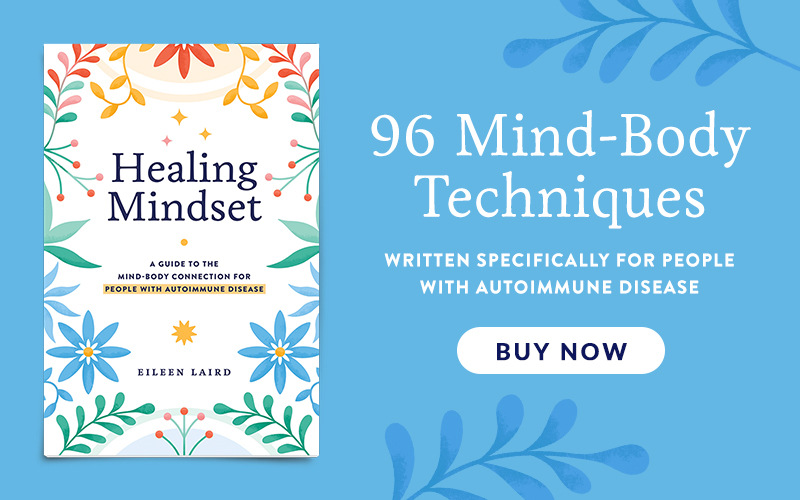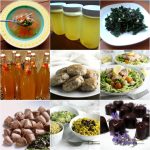“Baby steps can be taken at any age.” ~ Anonymous
Small Steps Can Kickstart Big Changes
When you first start thinking of making diet and lifestyle changes to improve your health, it can be pretty overwhelming. There are so many things that can drive inflammation, there are almost countless interventions to try. That’s both good and bad news. Good, because if one intervention doesn’t seem to help, the next one might (or the combination). Bad, because it’s easy to freeze when facing so many decisions. We’re also creatures of habit (even when they’re unhealthy habits). And we’re attached to our “comforts” (even when the end result isn’t comforting at all). So, what do we do?
Some of my readers are “dive in” types of people. They can go directly from a Standard American Diet to the Paleo Autoimmune Protocol with no steps in between. When it comes to improving sleep, they dive right into a 14-day challenge. When it comes to mindset, they’re ready to learn everything from EFT to meditation.
Yet I have many readers who want to make healthy changes, but don’t know where to begin. When you’re in poor autoimmune health, fatigue, pain, and brain fog are often part of daily life. Rock bottom can inspire a willingness to change, but it can also be a tough place to implement action. This blog post is for anyone who needs tiny steps to get started. There’s no shame in that! Baby steps are cumulative and can lead to huge improvements over time. It’s all about taking that first step. You don’t have to do this whole list at once, either. Choose one action step today.
10 Baby Steps Toward Autoimmune Health
- Take 3 slow, deep breaths when you go to bed at night and also when you wake up in the morning. Stress is inflammatory and relaxation techniques are anti-inflammatory. For most people, slow deep breaths activate the relaxation response. Deep breathing also increases the oxygen levels in your body which benefits cellular health bodywide, especially brain health. It’s a wonderful way to start and end your day.
- Go gluten-free, but choose real food over gluten-free packaged foods. Gluten can trigger autoimmunity in 3 ways: by increasing inflammation, activating the immune response, and causing leaky gut. However, simply replacing bread, crackers, pasta, and cookies with gluten-free versions rarely leads to health. Choose real food instead.
- Start a gratitude journal. Each night before bed, write down 3 things for which you’re grateful. The more specific, the better. These can be small things, like a beautiful flower, or the laughter of a child, or a good book. Try to choose 3 different things every day. When we’re suffering, pain can become our whole world. This practice widens our perspective again, reminding us that life is much bigger than our illness.
- Get outside for 5 minutes every day. While getting outside in nature is ideal, simply getting out in the fresh air and sunshine anywhere can be a boost to health. Sunshine stimulates the production of vitamin D, which is an immune system regulator, and it also helps establish healthy circadian rhythms which are essential to autoimmune health.
- Take something off your to do list that doesn’t really need to be done, or doesn’t need to be done by you. Ask someone for help, if you need it. People with autoimmune disease are commonly caretaker personalities. We’re used to giving, rather than receiving. And we often think that in order for something to be done “right”, it has to be done by us. Being in a position to ask for help may feel unnatural, but it can actually strengthen relationships. It can also help us let go of perfectionism, a character trait that hurts more than it helps.
- Make bone broth and drink 1 cup every day. Healing diets aren’t just about the foods we remove. They are also about the foods we choose to eat. Nutrient-density is essential to healing. Bone broth is rich in glycine and proline, amino acids which reduce inflammation, calm our immune system, and help our bodies heal on a cellular level. It’s a great place to begin.
- Take an Epsom salt bath once a week. More than 80,000 new chemicals have been released into the world since the industrial revolution 150 years ago. Our bodies have natural detoxification pathways, but they are overwhelmed by modern life. Many people with autoimmune disease have the added challenge of impaired detoxification abilities. Epsom salt baths support our bodies’ detoxification in a gentle way that has a side benefit of being very relaxing. They’re especially nice before bed.
- Buy a pair of amber glasses and wear them after the sun goes down. Sleep is essential to autoimmune health, and our ability to sleep is controlled by circadian rhythms. Artificial lighting from our computers, phones, televisions, and lights can trick our brain into thinking it’s still daytime 24 hours a day. Wearing amber glasses in the evening gives our brains the right nighttime signals. It encourages the release of melatonin, a hormone which helps us fall asleep and stay asleep.
- Take a technology break for 15 minutes every day. There are a lot of benefits to smartphones and the internet. We have access to information that can help transform our health, and a way to connect with people worldwide. But technology also has its negatives. It shortens attention span, increases anxiety and depression, and can keep us in a constant low-grade stress-response throughout our waking hours. So, take a break. You might choose to start your day with a phone-free morning, or end your day with a phone-free evening, or put it aside at dinnertime, or all of the above.
- Cultivate self-compassion. With autoimmune disease, we often feel at war with our bodies and it’s not uncommon to be angry with, and even hate our bodies. The problem is that we are one with our bodies, so this means we are directing that hatred at ourselves. Self-compassion exercises help us learn to befriend ourselves again. This comes with a host of benefits: it reduces stress, improves relationships, builds resilience, and increases our confidence and motivation to make other healthy changes in our lives. This is a perfect example of how a baby step becomes cumulative.
You May Also Be Interested In
Credit: image at top of page from Pixabay.








The steps to all round mental steps is a conscious one. I love how you talked about it. These steps are worth trying Eileen.
I think we should add good friends who are supportive all the way.
This is an interesting article. I very intentional about my gratitude journal. I’m excited seeing it in your list.
Good friends are true gifts! Thanks for choosing that for the list, November. Some people are luckier than others when it comes to having support. If anyone reading this comment is feeling lonely or isolated by their illness, I recorded a podcast to help: https://www.phoenixhelix.com/2019/11/29/episode-136-loneliness-with-dr-ellen-vora/
Thank you for sharing. I just tweeted the link and I’m sure it’s going to be useful to someone in my community.
I love these steps! They are manageable and take something that can feel restrictive and a lot like work and turn it into “self-care”. Sometimes re framing something that way is all we need to motivate healthy changes.
Thanks, Ambra. That’s so true!
I can’t tell if this diets allowed alcohol
( wine, beer or spirits ) in moderation. 1 drink per night.
Please advise.
Thank you!
Hi Enrique. This is a baby steps article, so it’s not about any kind of specific diet. Since one of the baby steps is gluten-free, that would eliminate beer, so that could be your first step. If you’re asking about the paleo autoimmune protocol, all alcohol is removed during the elimination phase, and then it can be tested during reintroduction to see how your body responds. Because alcohol is a toxin that needs to be processed by the liver, the recommendation is no more than 1-2 glasses a week and always grain-free (wine and tequila, but no beer or grain-based spirits). But again, that’s an advanced step rather than a baby step. You decide how big a step you want to make.
Thank you so much , I have RA and I hope this will be the beginning to fighting this without more medication . I have been searching all day for a beginners approach and this is perfect . Thank you
I love perfect timing! Wishing you wellness in every way.
Hi Eileen –
I’ve followed and appreciated your writing for years now, and I want to say a long overdue thank you for this post and for countless others. Thanks to you, I am much better informed about the autoimmune conditions that challenge me. What I appreciated in this post and what I’ve most appreciated over the years I’ve been reading you is your wise, kind voice that holds compassion & empathy for each of us and which encourages us all to treat ourselves with that same compassion & kindness. There have been some dark days in my healing, but I always know I can turn to your work for light & wisdom. Many thanks!
Pamela, what a beautiful comment. Thank you so much for taking the time to write. You brought tears to my eyes…in a good way!